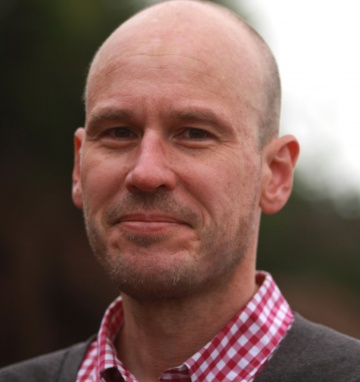Columbia College | Columbia University in the City of New York
“Staying in the City of Your Mind,” by Ben Ratliff ’90
After college in the 1980s, I stayed in New York City. I’m still here. Recently, I realized that most of the people I knew at Columbia and Barnard back then have left. Strange that it took me so long to notice.
They left because of the stress and speed and noise, which were old, or because of the unbelievable expense and its consequences, which were kind of new — especially after the 1994 City Council vote that made it possible for landlords to get around rent-stabilization rules and charge market rates. Gradually, a civilization was swapped out. New York is nearly a categorically different place from what it was 25 years ago.
By external fact, New York is a port city, an immigrant’s city, a trade and market center, a culture-education-media center, a polylingual walker-and-talker’s place, a hive of bars and clubs. By internal emotion, it is other things. You might be kind of person who lets New York stand in for your personal ambition; if so, the idea of leaving can look like forsaking that ambition. Or you might be the person who can break up with New York cleanly: You’re done with it, and it’s done with you. New York can be greedy toward the emotions. It can claim a monopoly both on greatness and leaveability. This is why so many people have responded to the city with songs about how mythical and magic it is, and essays — always essays! — about leaving it. These songs and essays, considered in bulk, can get pretty boringly binary.
New York has become most of what I know. I met my wife here and parented here and became a whole person here. Our kids are almost grown, and it’s most of what they know, too. For that reason, we are prepared to leave it. Maybe not this year, maybe not even the next, maybe sometime soon — the point is, the idea of leaving doesn’t make us nervous. Now that I calmly know I can leave, I can also calmly have this thought: What if we stayed? In other words: What is New York for those who fully realize that it is not the same place as it was 25 years ago?
Last year I taught a first-year undergraduate research class at NYU about the history of music in downtown Manhattan. Since the new class of 18-year-olds all live downtown, I figured, every day they pass sites of music-historical interest at nearly every other doorway. If their route were an annotated map, the text and photos and data would be sidebarring into the street, piling up against parked cars, blocking traffic.
Eighth Street, walking from east to west, is a good example: The Eighth Wonder club, where Jimi Hendrix played with Curtis Knight’s group in 1965; the Cookery, where in 1970 the brilliant jazz pianist Mary Lou Williams resumed performing, six nights a week and five sets a night, at age 60; the Artists’ Club, where John Cage gave his “Lecture on Nothing” in 1949; the Astor Opera House, where Walt Whitman listened to Alessandro Bettini, and in 1849 New Yorkers rioted against the rich and the English; the Dom, where the Velvet Underground first took shape; the Jazz Gallery, where John Coltrane started as a bandleader; Club 57, where in the last years before AIDS musicians, visual artists and filmmakers collaborated on radical homemade camp revues and post-punk dance parties; and on and on.
None of these places remain. That they were replaced by Duane Reades and banks does not mean that they never existed. Things happened there, just as things happened in my life, and my wife’s, and maybe yours, at thousands of other New York places that no longer exist. Once you start seeing the city through any kind of specialized map, you can’t see it any other way. The city of your daily experiences is important: You must have means. You must have support. You must have friends. But the other city, the city of your mind, is real too, as long as you keep living in that city. As the Brazilian singer Chico Buarque put it in “Tem Mais Samba,” there is more samba in the port than in the sail.
Of course that makes me think of my own port city, both my city of fact and my city of emotion. I can leave it; I can also like it. (I am trying to write an essay with one foot in and one foot out.) Obviously, New York is not the only port — everyone needs to make their own port. But I like what I hear Buarque saying: Leaving might be less interesting than staying put, mingling and jostling and scraping and mapping, wherever you do it, and however you feel about it.

Kate Fox Reynolds
More “Lion’s Den”
- 1 of 5
- ›

